Accommodation In Ireland
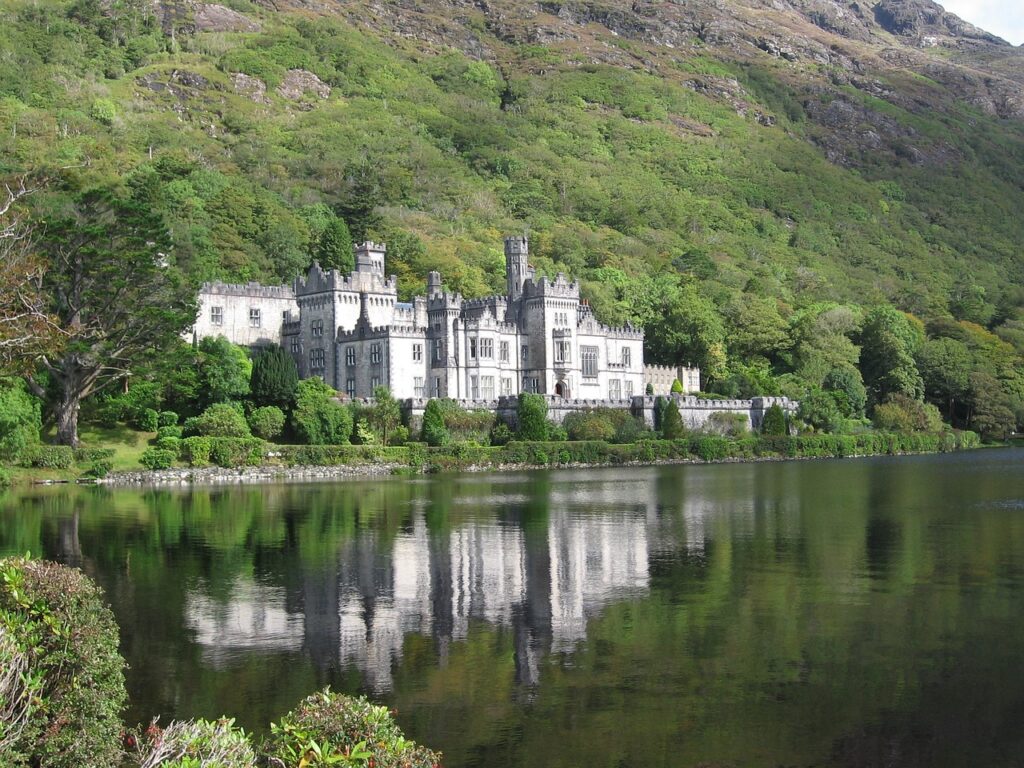

Choose your preferred accommodation
Hotels
Staying in hotels in Ireland offers a range of options, from luxury stays in historic castles to budget-friendly accommodations. Whether you’re visiting for business or leisure, here are some tips, resources, and essential information on hotels in Ireland:
Tips for Staying at a Hotel in Ireland:
- Book Early for Popular Locations: Cities like Dublin, Cork, and Galway, as well as tourist hotspots like the Ring of Kerry, can have high demand, especially during summer and holiday seasons. Booking in advance ensures better rates and availability.
- Look for Special Deals: Many hotels offer special packages that include extras like breakfast, guided tours, or spa services. It’s worth checking for these when you book, especially for longer stays or off-peak periods.
- Check Hotel Location: Ireland’s landscape is diverse, with urban hotels in city centers, countryside retreats, and coastal properties. Ensure the hotel’s location suits your travel needs—whether you’re seeking a central hub for sightseeing or a quiet rural escape.
- Consider Transportation: If you’re staying in the countryside, consider whether the hotel offers parking or shuttle services to nearby attractions. For city stays, check if the hotel is close to public transport, or if taxis and airport shuttles are readily available.
- Compare Star Ratings and Reviews: While star ratings can give you an idea of luxury and service levels, reading reviews on platforms like Tripadvisor or Google Reviews offers a clearer picture of guest experiences, service quality, and cleanliness.
- Check Cancellation Policies: Some hotels offer free cancellation or flexible booking options. This can be a lifesaver if your plans change last minute.
- Consider Breakfast Options: Many Irish hotels offer a full Irish breakfast as part of the stay, but some may charge extra. Double-check the booking details to see if it’s included and what breakfast options are available.
- Luxury Stays in Irish Castles: For a unique experience, consider staying in one of Ireland’s famous castle hotels, such as Ashford Castle or Dromoland Castle, which offer luxury accommodations with historic charm.
Resources for Finding Hotels:
- Booking.com (www.booking.com): One of the most popular platforms for finding hotels worldwide, Booking.com offers a wide selection of hotels across Ireland with detailed reviews, flexible booking options, and easy comparison of prices and amenities.
- Expedia (www.expedia.com): A global travel platform that lists hotels along with flights and car rentals. It’s useful for bundling travel services and often offers discounts for booking multiple services together.
- Tripadvisor (www.tripadvisor.com): This platform is great for browsing hotel options based on user reviews. You can sort hotels by rating, location, and price range and read first-hand experiences from other travelers.
- Irelandhotels.com (www.irelandhotels.com): This is an Irish-specific hotel booking site, part of the Irish Hotel Federation, which lists a broad range of hotels from budget to luxury, with easy navigation for finding deals and packages.
- Luxury Hotel Websites:
– Leading Hotels of the World (www.lhw.com): Offers a selection of high-end hotels in Ireland, particularly for those looking for luxury experiences.
– Relais & Châteaux (www.relaischateaux.com): Lists several exclusive Irish hotels and properties that emphasize gourmet dining and luxury experiences.
What to Expect from Hotels in Ireland:
- Variety of Options: Hotels in Ireland range from basic budget options to grand five-star properties. City hotels often cater to business travelers and tourists, while country hotels may offer spa services, golf courses, or scenic landscapes.
- Irish Hospitality: Irish hotels are known for their warm and welcoming service. You can expect friendly staff eager to help with recommendations or directions, making your stay pleasant and personalized.
- Breakfast Choices: Many hotels offer a hearty full Irish breakfast, featuring local items such as sausages, eggs, black and white pudding, soda bread, and tea or coffee. Some luxury hotels might also provide à la carte menus or buffet options.
- Modern Amenities: Free Wi-Fi, gym facilities, room service, and on-site restaurants are commonly offered in most mid-range to high-end hotels in Ireland. For upscale properties, look for additional amenities like spa treatments, fine dining, and concierge services.
- Boutique and Design Hotels: For a more unique and stylish stay, boutique hotels offer carefully curated interiors, often reflecting local design or modern architecture. These smaller hotels are ideal for travelers looking for a personalized experience.
Additional Information:
- Pricing: Hotel prices in Ireland vary widely depending on location, season, and star rating. Budget hotels can range from €70-€120 per night, while luxury options, especially in iconic destinations like Dublin or near tourist attractions, can range from €250-€500 or more per night.
- Green Tourism: Many Irish hotels are committed to sustainability, offering eco-friendly amenities such as energy-efficient lighting, recycling programs, and local, organic ingredients in their dining services. Look for certifications like the Green Hospitality Programme for eco-conscious options.
- Hotel Types:
– City Hotels: Perfect for urban exploration, with easy access to landmarks, dining, and entertainment.
– Country House Hotels: Ideal for relaxing in scenic locations, often surrounded by gardens or nature, with a focus on peace and tranquility.
– Castle Hotels: Stay in historic Irish castles turned hotels, offering a mix of luxury, history, and heritage.Staying in hotels in Ireland offers convenience, comfort, and a range of experiences, whether you’re exploring the vibrant cities or enjoying the tranquil countryside. With the right research, you’ll find the perfect hotel to complement your travel plans.
Bed & Breakfasts
Bed and breakfasts (B&Bs) are a popular accommodation choice in Ireland, known for their warm hospitality, personal touch, and local charm. If you’re planning a trip and considering staying in one, here are some tips, resources, and information to guide you:
Tips for Staying at a B&B in Ireland:
- Book Early: B&Bs tend to have fewer rooms than hotels, so it’s best to book early, especially during peak travel seasons (summer and holidays).
- Look for Authentic Experiences: B&Bs often provide unique experiences, like home-cooked Irish breakfasts, local insights, and suggestions for off-the-beaten-path attractions.
- Ask About Amenities: Each B&B varies in terms of amenities. Some may offer en-suite bathrooms, while others may have shared facilities. Inquire about parking, Wi-Fi, and laundry if needed.
- Enjoy the Breakfast: One of the highlights of staying at an Irish B&B is the hearty breakfast, which often includes traditional items like soda bread, black pudding, eggs, and bacon.
- Get to Know Your Hosts: Hosts are usually a treasure trove of local knowledge, offering tips on places to visit, restaurants to try, and hidden gems you wouldn’t find in a guidebook.
- Check Location: Many B&Bs are located in picturesque rural areas, small towns, or near key tourist attractions. Make sure the location suits your itinerary, whether you’re looking for coastal views, proximity to cities, or countryside quiet.
Resources for Finding B&Bs:
- B&B Ireland (www.bandbireland.com): This is one of the most comprehensive platforms for finding and booking quality B&Bs throughout Ireland. It provides filters for location, price range, and amenities, along with guest reviews.
- Ireland’s Blue Book (www.irelandsbluebook.com): This site lists a selection of historic B&Bs, country houses, and small hotels, ideal for travelers seeking a luxurious and charming experience.
- Airbnb (www.airbnb.com): While traditionally used for home rentals, Airbnb also lists many private B&Bs across Ireland, providing a wide range of options.
- Tripadvisor (www.tripadvisor.com): A good resource for reviews and recommendations from other travelers. You can search B&Bs by destination and check their ratings before booking.
- Discover Ireland (www.discoverireland.ie): This is the official tourism website for Ireland and provides information on a wide range of accommodations, including B&Bs.
What to Expect in an Irish B&B:
- Personalized Service: Irish B&Bs are often family-owned, which means a more personalized and welcoming experience compared to large hotels.
- Traditional Irish Breakfast: As mentioned, a typical Irish breakfast is hearty and delicious. It often includes local products like sausages, free-range eggs, and homemade bread.
- Cozy and Comfortable Rooms: While B&Bs may not have the same level of luxury as high-end hotels, they offer cozy, comfortable rooms with a homely feel.
- Local Insights: B&B hosts often share stories and knowledge about the area, giving you an authentic experience of Irish culture and daily life.
Additional Information:
- Pricing: The cost of staying at a B&B in Ireland varies depending on location and season, but you can generally expect prices between €60 and €120 per night, including breakfast.
- Eco-Friendly Options: Some B&Bs in Ireland focus on sustainability, offering organic food and environmentally-friendly amenities. Look for eco-label certifications or inquire directly with the host.
Staying at a bed and breakfast in Ireland is a wonderful way to immerse yourself in local culture, enjoy traditional hospitality, and create lasting memories in a warm, homey environment.
Castles
Staying in a castle in Ireland offers a truly unique and luxurious experience, blending history, elegance, and the charm of the Irish countryside. Many of these castles have been transformed into hotels, providing all the modern amenities while preserving their historic architecture and atmosphere. Here’s a some tips, resources, and essential information on staying in castles in Ireland:
Tips for Staying at a Castle in Ireland:
- Book Well in Advance: Castle stays are very popular, especially for weddings, honeymoons, and special occasions, so booking several months (or even a year) in advance is recommended. Peak times like summer and holidays fill up quickly.
- Understand the Castle’s Atmosphere: Some castle hotels are grand and luxurious, with fine dining and spa services, while others are more intimate and rustic. Determine whether you’re looking for a five-star experience or something more laid-back and historical.
- Look for Special Packages: Many castle hotels offer packages that include extras like afternoon tea, spa treatments, or guided tours of the castle grounds. These packages can add value and make your stay even more memorable.
- Consider the Location: Castles in Ireland are often located in the countryside, surrounded by gardens, lakes, or forests. While this is perfect for a peaceful retreat, it’s worth considering transportation options if you plan to explore the surrounding area. Some castles provide shuttle services or are near public transportation, but many require a car for easy access.
- Check the Castle’s History: Each castle has its own rich history, from medieval fortresses to aristocratic homes. Learning a bit about the history of the castle you’ll be staying in adds depth to the experience and can make your stay more engaging.
- Bring Formal or Semi-Formal Attire for Dining: Some castle hotels have fine-dining restaurants where a dress code is encouraged, especially for dinner. It’s worth checking if formal or semi-formal wear is required for certain dining experiences.
- Take Advantage of Castle Activities: Many castle hotels offer on-site activities such as horseback riding, archery, falconry, fishing, and guided tours. These activities often reflect the historic lifestyle and heritage of the castle, making your stay even more immersive.
- Enjoy Afternoon Tea: Castle hotels in Ireland often serve a luxurious afternoon tea, complete with scones, clotted cream, and finger sandwiches. It’s a quintessential part of the experience and a lovely way to relax during the day.
- Don’t Forget Your Camera: Castles are filled with picturesque rooms, historic features, and beautiful surroundings, perfect for photography. From grand ballrooms to ivy-covered walls, there’s plenty to capture during your stay.
Resources for Finding Castle Hotels:
- Ireland’s Blue Book (www.irelandsbluebook.com): A collection of historic hotels, country houses, and castles in Ireland, Ireland’s Blue Book offers a hand-picked selection of luxury accommodations. Each property is chosen for its charm, history, and high standards.
- Booking.com (www.booking.com): While primarily known for regular hotel listings, Booking.com also features a range of castle hotels in Ireland. You can search by location, star rating, and user reviews to find the right castle for your stay.
- Relais & Châteaux (www.relaischateaux.com): This global luxury hotel collection features several castle properties in Ireland, focusing on exceptional hospitality, fine dining, and unique settings. It’s a great resource for high-end castle stays.
- Tripadvisor (www.tripadvisor.com): Tripadvisor provides reviews, ratings, and images from travelers who have stayed in castle hotels across Ireland. It’s a good way to get a sense of what to expect in terms of service, amenities, and atmosphere.
- Luxury Castle Stays (www.luxurycastlestays.com): This site specializes in listing castle hotels throughout Europe, including Ireland. It’s an excellent resource for comparing castles based on location, price, and luxury level.
- Historic Hotels of Europe (www.historichotelsofeurope.com): A collection of historic properties, including Irish castles, this website focuses on accommodations that reflect European history and heritage. They provide a curated list of castles with a focus on cultural and historical significance.
What to Expect from Castle Stays in Ireland:
- Luxury and History Combined: Castle hotels offer a unique blend of luxury and history. While some castles maintain their medieval charm, with stone walls and antique furnishings, they also provide modern conveniences like Wi-Fi, en-suite bathrooms, and fine dining restaurants.
- Fine Dining and Gourmet Experiences: Many castle hotels are known for their gourmet dining experiences, often serving traditional Irish cuisine with a modern twist. Some even have Michelin-starred restaurants or award-winning chefs, making dining a highlight of your stay.
- On-Site Activities: Irish castles often come with expansive grounds and offer activities like horse riding, golf, archery, fishing, and even falconry. Walking tours of the castle and its gardens, as well as historical talks, are also common.
- Exclusive Spa and Wellness Services: Many castle hotels have luxurious spa facilities offering a range of treatments, from massages to facials, often in a setting that reflects the historic character of the castle. Some spas focus on Irish seaweed-based treatments or locally sourced ingredients.
- Opulent Interiors: Expect grand interiors, including high ceilings, antique furniture, chandeliers, and four-poster beds. Each room in a castle is often unique, with many showcasing historic artwork, tapestries, and medieval or Georgian architecture.
- Peaceful, Scenic Locations: Castle hotels are usually situated in beautiful countryside settings, offering peace and quiet away from the hustle and bustle of city life. Many castles are surrounded by gardens, lakes, or wooded areas, ideal for leisurely strolls or picnics.
Additional Information:
- Price Range: Castle stays tend to be more expensive than regular hotels, with prices ranging from €200 to €500 per night, depending on the luxury level and location. More exclusive or historic castles can cost upwards of €1,000 per night, especially for suites or premium rooms.
- Popular Castles in Ireland:
– Ashford Castle (Co. Mayo): One of the most famous castle hotels in Ireland, this five-star property offers luxurious accommodations, fine dining, a spa, and activities like falconry and horseback riding.
– Dromoland Castle (Co. Clare): Another iconic castle, Dromoland combines historic charm with modern luxury. Guests can enjoy golf, spa treatments, and traditional Irish hospitality.
– Lough Eske Castle (Co. Donegal): This five-star hotel is set in a stunning location near Lough Eske, offering a blend of modern elegance and medieval history.
– Ballynahinch Castle (Co. Galway): Situated on 700 acres of woodland and rivers, Ballynahinch Castle offers a more relaxed, country house-style atmosphere with fishing, hiking, and scenic views.
– Kilkea Castle (Co. Kildare): One of the oldest inhabited castles in Ireland, Kilkea offers luxury accommodation with a rich history and a range of activities, including golf and falconry. - Eco-Friendly Castles: Some castle hotels emphasize sustainability, using eco-friendly practices like energy conservation, water management, and sourcing local and organic produce. Check if the castle has any green certifications or sustainability initiatives.
- Destination Weddings and Events: Irish castles are popular for weddings and special events, often offering exclusive use of the property, bespoke menus, and personalized services for guests. Many have dedicated wedding planners to help organize every detail of your special day.
Staying in a castle in Ireland is a dream come true for many travelers. Whether you’re looking for a romantic getaway, a luxurious retreat, or a chance to experience Irish history, castle hotels offer a memorable and enchanting experience, blending modern comforts with centuries of tradition.
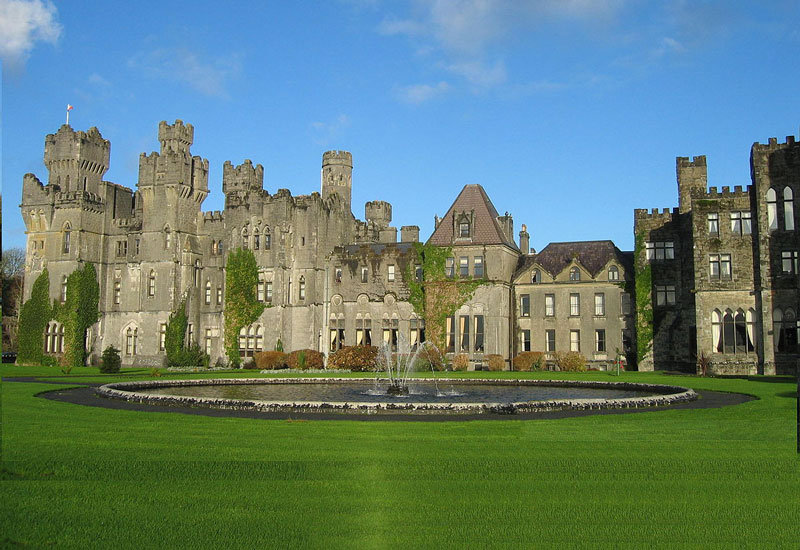
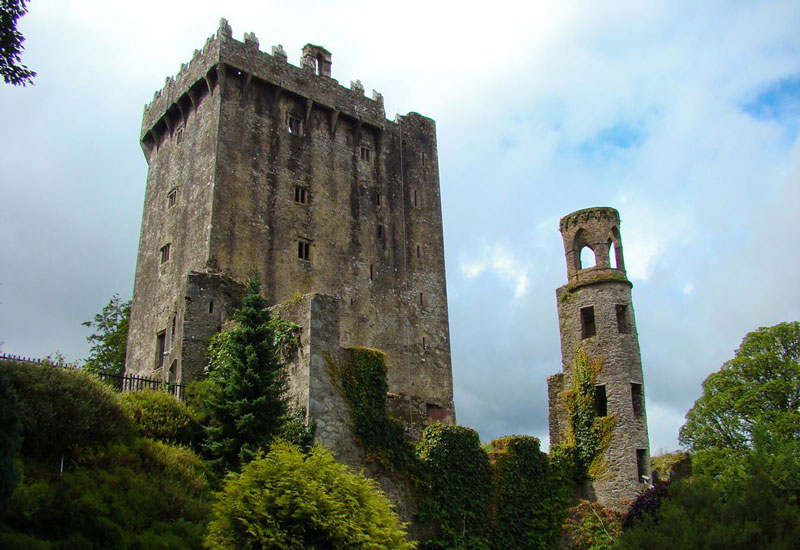
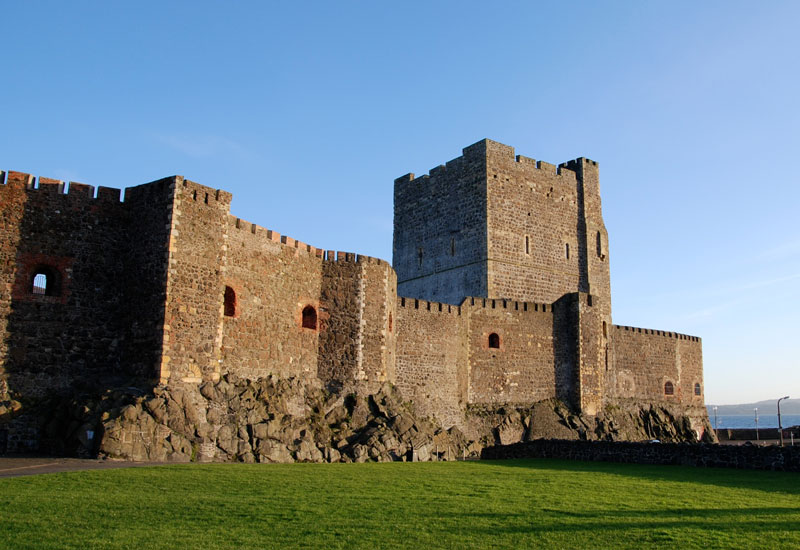
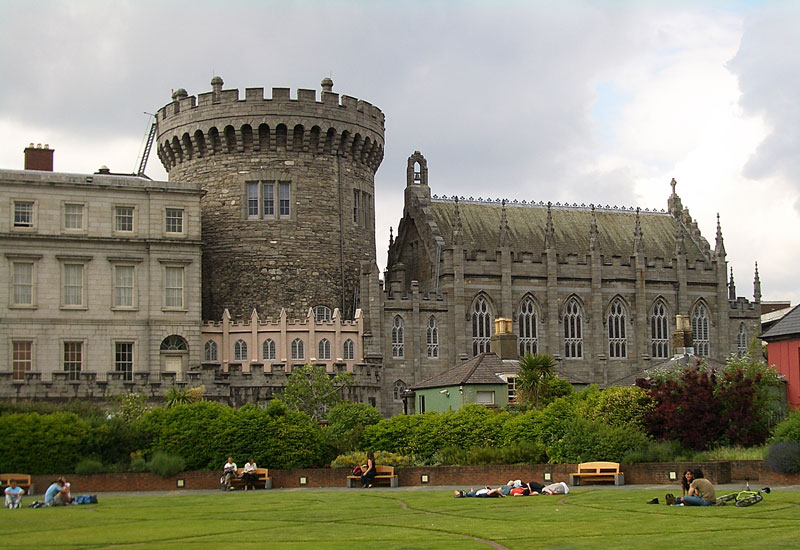
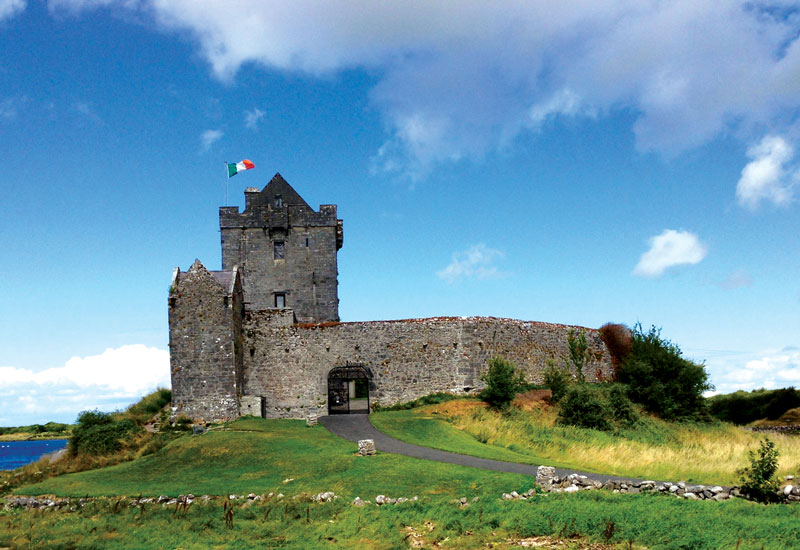
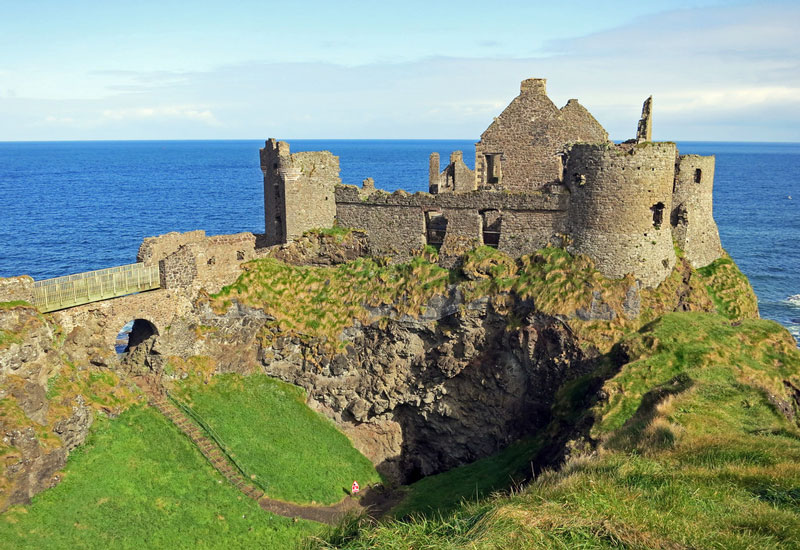
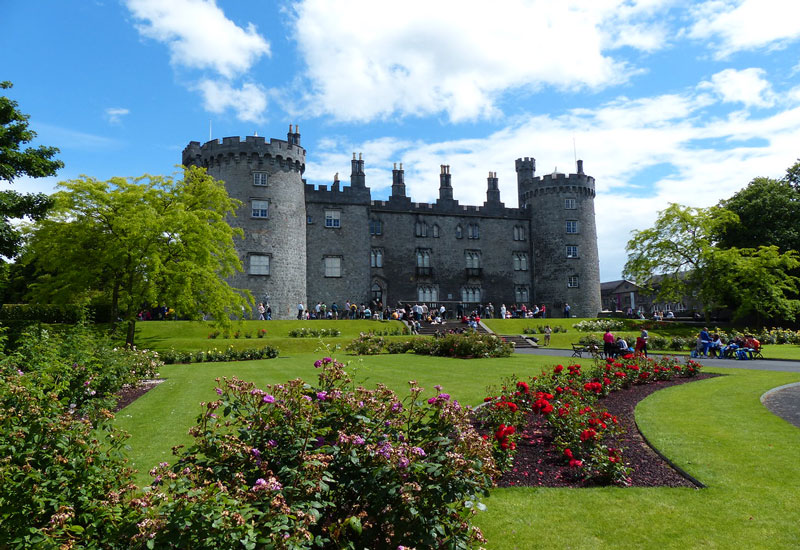
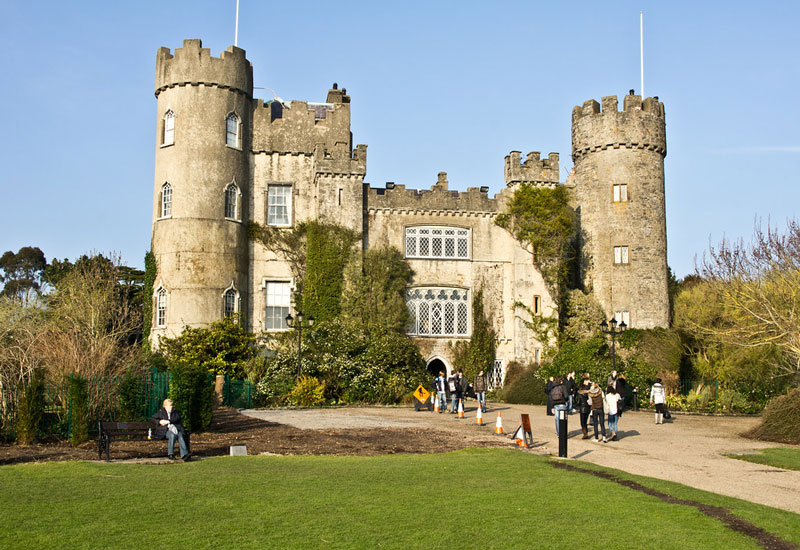
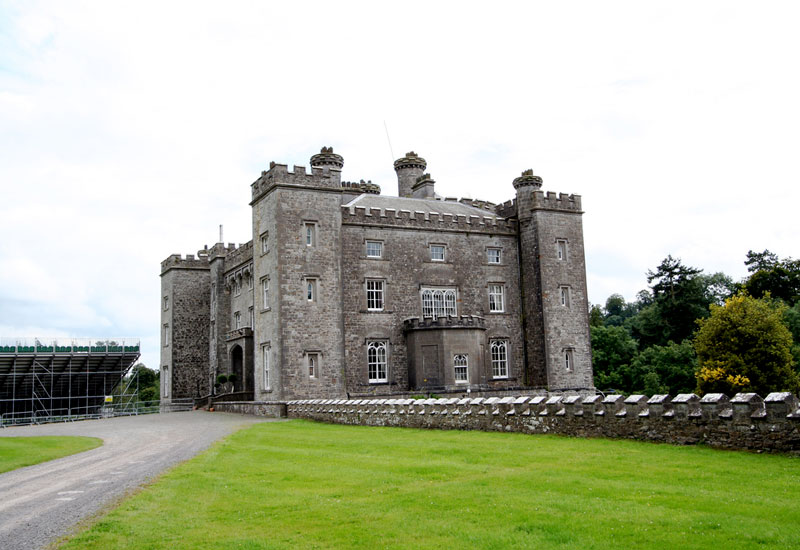
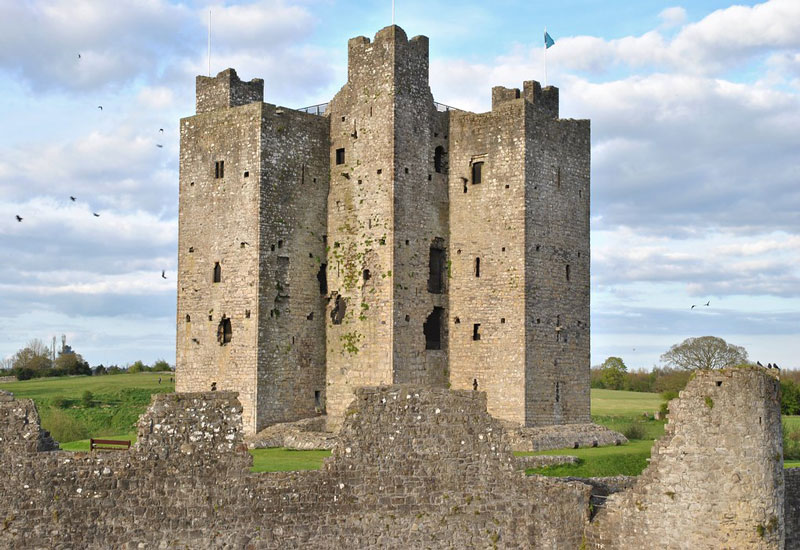
Hostels
Staying in hostels in Ireland is a budget-friendly option that allows travelers to meet new people and experience a more social atmosphere. Hostels range from basic dormitory-style accommodations to more private rooms and can be found in cities, small towns, and rural areas. Here’s some tips, resources, and essential information on hostels in Ireland:
Tips for Staying at a Hostel in Ireland:
- Book in Advance: Although hostels tend to be less expensive than hotels, they can still fill up, especially in popular tourist spots like Dublin, Galway, and Killarney. Book ahead, particularly in summer or during festivals.
- Choose the Right Room Type: Hostels offer a variety of room types, from large mixed dorms to smaller, gender-specific dorms, and even private rooms. Decide what suits your needs and budget—dorms are cheaper but may lack privacy.
- Pack Essentials: Most hostels provide bedding, but some may charge for extras like towels or padlocks for lockers. Pack your own toiletries, towel, earplugs (for dorm rooms), and a padlock for securing your belongings in shared spaces.
- Check for Curfew and Reception Hours: Some hostels have a curfew or lock the doors at a certain time for security reasons, and reception might not be open 24/7. Make sure to confirm these details, especially if you plan to arrive late.
- Use the Hostel Kitchen: Hostels typically have shared kitchen facilities where you can cook your own meals, helping you save on food costs. It’s a great way to meet other travelers too, as many people gather to cook and eat together.
- Participate in Hostel Activities: Many Irish hostels organize activities like walking tours, pub crawls, and communal dinners. This is a great way to explore the area and meet fellow travelers. Take advantage of these social opportunities.
- Check the Hostel’s Vibe: Some hostels are more lively and social (great for solo travelers or party-goers), while others are quieter and more suited for families or travelers seeking rest. Look at reviews to gauge the atmosphere before booking.
- Location Matters: Ensure the hostel’s location fits your travel plans. Hostels in the city center will provide easy access to attractions but might be noisier, while rural hostels might offer peace and scenic views but could be farther from major transport routes.
Resources for Finding Hostels:
- Hostelworld (www.hostelworld.com): One of the largest and most reliable platforms for booking hostels worldwide. Hostelworld allows you to search by location, price, and reviews. It’s a go-to resource for finding hostels in cities like Dublin, Cork, and Galway, as well as rural areas.
- Booking.com (www.booking.com): While primarily known for hotels, Booking.com lists hostels too, providing reviews, ratings, and easy price comparison. It’s useful for checking hostel availability alongside other accommodation types.
- HI Hostels Ireland (www.hihostels.com): Part of Hostelling International, this platform lists official youth hostels across Ireland. They focus on affordable, safe, and eco-friendly stays in key locations like Dublin, Killarney, and Connemara.
- Tripadvisor (www.tripadvisor.com): Like with hotels, Tripadvisor is a great resource for hostel reviews. You can sort listings by traveler ratings and get an idea of what to expect from different hostels in Ireland.
- Independent Irish Hostels (www.independenthostelsireland.com): This network of independently run hostels provides a more local experience. These hostels are often located in scenic areas like national parks, coastal regions, and small villages.
What to Expect from Hostels in Ireland:
- Affordable Accommodation: Hostels are typically the cheapest form of accommodation in Ireland, ideal for backpackers, solo travelers, and those on a tight budget. Dorm beds can cost anywhere from €15 to €35 per night, while private rooms might range from €50 to €100 depending on the location.
- Social Atmosphere: Hostels are usually more social than hotels or B&Bs. You’ll find common areas where guests can relax, watch TV, or play games. Many hostels have lively atmospheres with group events and activities like walking tours, which make it easy to meet fellow travelers.
- Basic Facilities: Expect basic but clean facilities, including shared bathrooms, communal kitchens, and lounge areas. Many hostels also offer free Wi-Fi, luggage storage, and sometimes laundry services. Some may provide free breakfast or charge a small fee for a continental option.
- Diverse Guests: Hostels attract a mix of travelers, from young backpackers and gap-year students to older adventurers and budget-conscious tourists. You’re likely to meet people from all over the world.
- Safety Measures: Most hostels have lockers where you can store valuables, and many have 24-hour reception or security. In dorms, it’s a good idea to use a padlock for your locker, and keep your belongings secured when you’re out exploring.
Additional Information:
- Private Rooms Available: While hostels are often associated with dorm-style accommodations, many offer private rooms for couples, families, or travelers seeking a bit more privacy. These rooms tend to be more affordable than hotels but still provide the social benefits of hostel life.
- Eco-Friendly Options: Several hostels in Ireland focus on sustainability, with eco-friendly practices like recycling, water conservation, and energy-saving measures. Hostels like The Connemara Hostel and The Black Sheep Hostel in Killarney are known for their green credentials.
- Family-Friendly Hostels: Some hostels cater to families with larger private rooms and family-friendly activities. Look for hostels in more rural or scenic areas where the atmosphere is quieter, and check for amenities like cribs, high chairs, and playgrounds.
- Hostels in Iconic Locations: Hostels in Ireland are located in prime tourist areas. In Dublin, you’ll find hostels near Temple Bar and Trinity College. In Galway, you can stay in the heart of the Latin Quarter. Rural hostels are often situated near Ireland’s famous natural attractions, like the Cliffs of Moher or the Ring of Kerry.
- Extras and Perks: Some hostels offer extra perks like bike rentals, discounted tours, or free pub crawl tickets. Be sure to ask at the front desk about any deals or activities available to guests.
Staying in hostels in Ireland is a fantastic way to experience the country on a budget while meeting fellow travelers. Whether you’re exploring Ireland’s cities or enjoying the countryside, hostels offer affordable and sociable accommodation with a friendly atmosphere.
Guest Houses
Staying at a guest house in Ireland offers a cozy, personal, and often affordable accommodation option. Guest houses are typically smaller than hotels and are known for their welcoming atmosphere, personal touches, and excellent service. Many are family-run, making guests feel like they’re staying in a home away from home. Here’s some tips, resources, and essential information on staying in guest houses in Ireland:
Tips for Staying at a Guest House in Ireland:
- Understand the Difference Between Guest Houses and B&Bs: While guest houses and bed-and-breakfasts (B&Bs) are similar, guest houses tend to be a bit larger and may offer more services, such as dinner or additional facilities like lounges or bars. However, they maintain the same homely and personal atmosphere that B&Bs are known for.
- Look for Authentic Irish Hospitality: One of the biggest draws of guest houses is the chance to experience genuine Irish hospitality. Hosts often go above and beyond to make guests feel welcome, offering tips on local attractions, dining spots, and hidden gems in the area. Don’t hesitate to ask for recommendations.
- Check for Breakfast Options: Most guest houses in Ireland offer a full Irish breakfast, often included in the room rate. This typically includes bacon, eggs, sausages, black pudding, grilled tomatoes, and toast, but lighter options like cereals and fruit are usually available as well.
- Book Direct for the Best Rates: While online booking platforms are convenient, booking directly through the guest house’s own website or via phone can sometimes get you a better rate, as you avoid third-party fees. Additionally, some guest houses offer special packages or upgrades for direct bookings.
- Ask About Amenities: Guest houses vary in what they offer. Some provide extras like free Wi-Fi, parking, or tea and coffee-making facilities, while others may offer evening meals, guest lounges, or beautiful gardens. If specific amenities are important to you, be sure to confirm in advance.
- Consider the Location: Guest houses can be found in cities, towns, and rural areas across Ireland. In cities, they often provide a more personal alternative to large hotels, while in the countryside, they offer peaceful escapes with easy access to nature. Choose a location that fits your travel plans, and ensure you have transportation options if staying in more remote areas.
- Be Aware of Check-In and Check-Out Times: Unlike hotels, guest houses may have more limited check-in and check-out times due to being family-run. If you need flexibility with your arrival or departure time, it’s best to communicate this in advance with the host.
- Pack for a Homely Stay: Guest houses often have a more informal, homey feel compared to hotels. You might find yourself lounging in a shared sitting room or enjoying the garden, so comfortable clothing and casual attire are usually suitable for these laid-back environments.
- Plan for Fewer Services: While some guest houses offer dinner or bar services, many do not. However, the owners are usually more than happy to recommend excellent local restaurants and pubs nearby. Some guest houses even partner with local eateries to provide special deals for their guests.
- Enjoy the Local Flavor: Guest houses often reflect the culture and traditions of the region they are located in. This can be seen in the décor, local produce used in meals, or even the historical stories shared by the hosts. Embrace this unique flavor to enrich your Irish experience.
Resources for Finding Guest Houses in Ireland:
- Bord Fáilte Ireland (www.failteireland.ie): This is Ireland’s national tourism development authority, and they provide a list of approved guest houses across Ireland. Look for the Fáilte Ireland quality assurance logo when choosing a guest house to ensure it meets high standards.
- Ireland Guesthouses Directory (www.irelandguesthouses.com): A dedicated resource for finding guest houses across Ireland, this directory lets you search by region and provides contact information and descriptions for each property.
- Booking.com (www.booking.com): This site features a wide range of accommodation options, including guest houses, with user reviews, ratings, and filters to help you find the perfect stay. It’s useful for comparing locations, prices, and availability in real time.
- Tripadvisor (www.tripadvisor.com): Another reliable source for guest house listings, Tripadvisor allows you to see user reviews and detailed ratings for guest houses throughout Ireland. The platform also highlights guest houses that offer value for money or have received special recognition from travelers.
- Ireland’s Blue Book (www.irelandsbluebook.com): This collection features a selection of luxury guest houses in Ireland, offering high-end accommodations in historic homes and country estates. It’s ideal if you’re looking for something more upscale.
- Expedia (www.expedia.com): Expedia offers a variety of guest house listings in both city and countryside locations. The site provides detailed descriptions, user reviews, and deals on guest houses as part of travel packages.
- Discover Ireland (www.discoverireland.ie): The official tourism site of Ireland includes guest house listings along with travel guides and suggestions for things to do in each area. It’s a comprehensive resource for trip planning.
What to Expect from Guest House Stays in Ireland:
- Personalized Service: In guest houses, the hosts often take a hands-on approach to hospitality. You’ll likely get personalized attention, with the owners making every effort to ensure you’re comfortable and well-informed about the local area. Don’t be surprised if you end up having friendly chats over breakfast or receiving personalized recommendations.
- Varied Room Sizes and Styles: Guest houses tend to be in older homes or converted properties, which means the rooms can vary greatly in size, layout, and style. While some guest houses have modern décor, others retain traditional Irish elements, such as antique furniture, fireplaces, and cozy bedding.
- Cozy Atmosphere: Guest houses generally offer a relaxed and intimate atmosphere. With fewer rooms than large hotels, there’s more opportunity to enjoy peaceful surroundings, chat with other guests, or relax in communal areas like a lounge or garden.
- Family-Run Businesses: Many guest houses are run by families, giving them a warm, personal touch. The hosts are often passionate about their region and happy to share local stories, history, and traditions, making your stay a cultural experience as well.
- Great Locations: Guest houses are often located in scenic spots, whether it’s a village in the countryside, a coastal town, or a neighborhood in a bustling city. Many are near popular tourist attractions or offer easy access to outdoor activities like hiking, cycling, or scenic drives.
- Clean and Comfortable: While not as luxurious as a five-star hotel, guest houses in Ireland are generally known for being clean, comfortable, and well-maintained. Hosts take pride in their properties and often pay attention to small details to make your stay enjoyable.
- A Hearty Breakfast: One of the highlights of staying at a guest house is the breakfast. Typically included in the price, breakfast may range from a full Irish breakfast to continental options like fruit, yogurt, and pastries. Hosts often source ingredients locally, adding to the authenticity of the experience.
Additional Information:
- Price Range: Guest houses in Ireland are typically more affordable than hotels but can range from budget-friendly to mid-range or even luxury, depending on the property and location. Prices usually start around €60-€120 per night for a double room, though some higher-end guest houses may charge more, particularly in popular tourist areas.
- Popular Guest House Destinations:
– Dingle Peninsula (Co. Kerry): Known for its stunning scenery and cozy accommodations, the Dingle Peninsula has many charming guest houses offering beautiful views and a peaceful retreat.
– Galway City (Co. Galway): In Galway, you’ll find guest houses that are perfect for exploring this vibrant city’s cultural attractions while enjoying a more intimate, personal stay.
– Killarney (Co. Kerry): With its proximity to Killarney National Park, guest houses in this region offer access to outdoor activities and beautiful landscapes.
– Westport (Co. Mayo): A charming town with plenty of character, Westport is a great base for exploring the nearby mountains, islands, and beaches, with many friendly guest houses to choose from.
– Dublin (Co. Dublin): For visitors looking to stay in the capital city but wanting a more personal experience, Dublin’s guest houses provide an excellent alternative to larger city hotels. - Eco-Friendly Guest Houses: Many guest houses in Ireland are committed to sustainability and eco-friendly practices, such as using energy-efficient appliances, sourcing food locally, or reducing waste. Look for guest houses with eco-certifications or inquire directly if this is important to you.
- Activities and Tours: Some guest houses offer activities or partner with local tour operators to provide guided walks, bike rentals, or day trips to nearby attractions. It’s worth asking your hosts if they can arrange special experiences for you during your stay.
Staying at a guest house in Ireland offers a blend of comfort, authenticity, and affordability. It’s a great way to experience local hospitality, enjoy a more personal stay, and connect with the culture and history of Ireland.
Self-Catering
Self-catering accommodations in Ireland are an excellent option for travelers who prefer independence, privacy, and flexibility during their stay. With a variety of properties available, including cottages, apartments, and holiday homes, self-catering allows you to set your own pace and enjoy home comforts while exploring the beauty of Ireland. Here’s a comprehensive guide to tips, resources, and essential information on staying in self-catering accommodations in Ireland:
Tips for Staying in Self-Catering Accommodations in Ireland:
- Choose the Right Location: Self-catering properties can be found all over Ireland, from bustling cities like Dublin and Galway to remote rural areas and coastal regions. Consider what kind of experience you want. If you plan on exploring nature, opt for cottages or homes in the countryside. If city attractions are your focus, look for apartments in central areas.
- Book in Advance: Self-catering accommodations are especially popular in summer and during holiday seasons. Booking early is advisable, particularly in tourist hotspots such as Killarney, the Ring of Kerry, and the Wild Atlantic Way. Early booking also gives you more choice in terms of property size and amenities.
- Be Prepared for Self-Catering: Since you’ll be preparing your own meals, check in advance what kitchen facilities are available in the property. Most self-catering accommodations come equipped with essentials like a stove, fridge, microwave, and cookware, but you may want to confirm whether they provide items like condiments, dish soap, or cleaning supplies.
- Local Shopping for Groceries: Take advantage of local markets, farmers’ shops, and supermarkets for fresh produce, especially in rural areas. Ireland is known for its high-quality dairy products, fresh meats, and seafood, so enjoy cooking with local ingredients. Popular supermarket chains include Tesco, Dunnes Stores, SuperValu, and Aldi, which are well-stocked for all your needs.
- Explore the Local Cuisine: While cooking for yourself can be rewarding, don’t miss the opportunity to try local restaurants, pubs, and cafés. Many self-catering properties are located near small towns and villages where you can enjoy Irish specialties like seafood chowder, Irish stew, or a full Irish breakfast.
- Check Property Reviews: Before booking, always read reviews from past guests to get a sense of the property’s cleanliness, amenities, and the host’s communication. Websites like Airbnb, Booking.com, and TripAdvisor provide ratings and guest feedback that can help you make an informed decision.
- Plan for Laundry: If you’re staying in Ireland for an extended period, having access to laundry facilities can be a big convenience. Many self-catering properties offer washing machines and dryers, but some do not. If laundry facilities are important to you, check this before booking or plan on using a nearby launderette.
- Consider the Season: Ireland’s weather can be unpredictable, with rain possible at any time of year. If you’re staying in a more rural or coastal location, pack layers, waterproof clothing, and appropriate footwear. In winter, some self-catering cottages offer fireplaces or stoves, making for a cozy stay, but also confirm the heating situation in advance.
- Understand the Check-In and Check-Out Process: Self-catering properties often have a self-check-in process with key boxes or meet-and-greet arrangements. Make sure to understand how this works ahead of time, especially if you’re arriving late or leaving early.
- Bring Personal Items: While most self-catering properties provide basic linens and towels, consider bringing personal items such as toiletries, extra towels for beach trips, or specialized kitchen tools if you have specific cooking needs (like sharp knives or a favorite spice).
Resources for Finding Self-Catering Accommodations in Ireland:
- Airbnb (www.airbnb.com): Airbnb offers a wide range of self-catering options, from city apartments to rural cottages. With its detailed property descriptions, guest reviews, and direct communication with hosts, Airbnb is a popular choice for travelers looking for flexibility and a local touch.
- Vrbo (www.vrbo.com): Vrbo (Vacation Rentals by Owner) specializes in vacation homes and self-catering properties. It’s ideal for families or groups looking for larger accommodations, and the site allows you to filter properties by amenities like kitchen facilities, pet-friendly options, and proximity to attractions.
- Booking.com (www.booking.com): While known for hotels, Booking.com also has a large selection of self-catering accommodations, including apartments, holiday homes, and cottages. The platform offers competitive prices and allows you to compare various properties in different locations.
- Ireland’s Blue Book (www.irelandsbluebook.com): For a more luxurious self-catering experience, Ireland’s Blue Book offers a curated selection of historic houses, country cottages, and elegant manors. These properties often provide top-notch amenities and are situated in picturesque locations.
- Discover Ireland (www.discoverireland.ie): The official tourism site for Ireland lists a range of self-catering accommodations throughout the country. It’s a good resource for planning your trip and exploring different regions of Ireland.
- Trident Holiday Homes (www.tridentholidayhomes.ie): Specializing in self-catering properties across Ireland, Trident Holiday Homes offers a wide range of options for different budgets and travel styles. Their properties are family-friendly and located in prime holiday spots.
- Shamrock Cottages (www.shamrockcottages.co.uk): This site focuses on self-catering cottages in rural and coastal locations throughout Ireland. It’s an excellent resource for travelers seeking a peaceful retreat in the countryside or by the sea.
- Irish Landmark Trust (www.irishlandmark.com): For a unique self-catering experience, the Irish Landmark Trust offers beautifully restored historic properties, including lighthouses, castles, and gate lodges. These properties combine history with modern comforts.
What to Expect from Self-Catering Accommodations in Ireland:
- Independence and Flexibility: One of the main advantages of self-catering is the freedom it provides. You can cook your own meals, set your own schedule, and enjoy the space and privacy of your own accommodation. This makes it a great option for families, groups, or couples seeking a more personal travel experience.
- Wide Variety of Properties: Self-catering options in Ireland range from quaint cottages and apartments to larger holiday homes, farmhouses, and even unique properties like lighthouses and converted barns. No matter your budget or travel style, you’re likely to find something that suits your needs.
- Home Comforts: Self-catering properties typically include a fully-equipped kitchen, living areas, and often outdoor space. Depending on the property, you might also have access to extras like a fireplace, BBQ facilities, or a garden with stunning views.
- Cultural Immersion: Staying in a self-catering property often places you closer to local communities and gives you the opportunity to experience everyday Irish life. Whether you’re visiting a rural village, coastal town, or a neighborhood in the city, self-catering offers a more immersive and authentic experience.
- Budget-Friendly: For travelers who want to save on meals, self-catering is a cost-effective option. You can cook your own food using local ingredients, reducing the need to dine out for every meal. Larger groups or families will also find that self-catering accommodations offer better value than booking multiple hotel rooms.
- Longer Stays: Many self-catering properties offer discounts for weekly or monthly stays, making them a good option for travelers who want to stay in one place for an extended period. Long-term rentals are often more affordable and come with the added benefit of living like a local.
- Varied Locations: From coastal escapes and mountain hideaways to city center apartments, the range of self-catering accommodations in Ireland is vast. Whether you want to stay by the cliffs of the Wild Atlantic Way, in the heart of Dublin, or near iconic landmarks like the Cliffs of Moher or the Giant’s Causeway, you can find a property in your preferred location.
Additional Information:
- Price Range: Self-catering accommodations can vary greatly in price, depending on the property’s size, location, and amenities. On average, prices range from €70-€150 per night for a small cottage or apartment, while larger holiday homes or luxury properties can be more expensive, especially during peak season.
- Popular Self-Catering Destinations:
– The Wild Atlantic Way: With its dramatic coastline and charming towns, the Wild Atlantic Way is a popular choice for self-catering, offering holiday homes and cottages with ocean views.
– Ring of Kerry (Co. Kerry): Famous for its scenic drives, the Ring of Kerry is home to many cottages and homes ideal for exploring the surrounding landscape.
– Connemara (Co. Galway): Known for its rugged beauty, Connemara offers rural cottages with access to hiking, lakes, and the Atlantic coast.
– Dingle Peninsula (Co. Kerry): The Dingle Peninsula is home to colorful villages, stunning beaches, and a range of self-catering properties for visitors who want to experience traditional Irish culture.
– Dublin (Co. Dublin): For those looking to explore Ireland’s capital, self-catering apartments in Dublin provide a convenient and flexible base for sightseeing and nightlife. - Eco-Friendly Options: Many self-catering accommodations in Ireland have adopted eco-friendly practices, such as using renewable energy, recycling programs, and reducing water usage. If sustainability is important to you, look for properties that advertise their eco-conscious efforts.
- Family-Friendly: Self-catering is a great option for families, as it provides the space and flexibility needed when traveling with children. Many properties come equipped with multiple bedrooms, outdoor play areas, and amenities
Staying in self-catering apartments and cottages in Ireland offers travelers a homely and flexible option for their vacation, allowing for more independence, space, and the ability to cook meals. Whether you’re planning a city break in Dublin or a countryside escape along the Wild Atlantic Way, renting an apartment or cottage provides a comfortable base to explore Ireland’s diverse landscapes and attractions. Here’s a comprehensive guide to tips, resources, and essential information on apartments and cottages in Ireland:
Apartments & Cottages
Renting an apartment or cottage in Ireland offers travelers a unique way to immerse themselves in the charm and diversity of the country’s landscapes and cities. With options ranging from modern city apartments to traditional stone cottages, visitors can choose accommodations that best suit their desired experience, whether it’s a coastal retreat along the Wild Atlantic Way, a quiet rural getaway in Connemara, or a lively city base in Dublin or Galway. Renting allows for self-catering flexibility, providing a homely space to prepare meals, relax, and unwind while exploring Ireland’s renowned natural beauty, vibrant culture, and historic attractions. Here are some essential tips to help you find the perfect rental for your Irish adventure.
Tips for Renting Apartments and Cottages in Ireland:
- Choose the Right Location: Whether you want a coastal retreat, a rural hideaway, or a central city apartment, Ireland offers a wide range of rental options. For those who love the outdoors, areas like Connemara, Kerry, or Donegal are perfect for cottages near hiking trails and beaches. For a more urban experience, Dublin, Galway, and Cork have plenty of modern apartments near restaurants, attractions, and cultural sites.
- Book Early (Especially for Peak Seasons): Apartments and cottages are popular choices for travelers seeking self-catering options, and they can book up quickly, especially in peak season (summer) and around holidays like Christmas or Easter. Booking early helps secure the best properties in your preferred location.
- Check the Amenities: Ensure the apartment or cottage you choose has the amenities you need, such as a fully equipped kitchen, Wi-Fi, parking, or laundry facilities. Rural cottages may not always offer high-speed internet or modern conveniences, so it’s important to verify what’s included in the rental.
- Read Reviews and Ratings: Before booking, check reviews and ratings from previous guests to get an idea of the quality and cleanliness of the accommodation, as well as the responsiveness of the host. Trusted platforms like Airbnb, Booking.com, and VRBO provide guest reviews that can help guide your decision.
- Plan for Self-Catering Meals: One of the benefits of staying in a self-catering apartment or cottage is the ability to cook your own meals, allowing you to sample fresh, local ingredients. Many cottages are near farmers’ markets, fishmongers, and artisan food producers. Make sure the kitchen is equipped with the essentials, and bring or purchase ingredients for cooking.
- Consider Length of Stay: Some apartments and cottages may require a minimum stay (often 2–3 nights), especially during busy periods. Cottages in more remote areas may offer weekly rentals only, so it’s important to check the minimum stay requirements before booking.
- Look for Pet-Friendly Options: Many cottages and apartments in Ireland are pet-friendly, allowing you to bring your dog or other pets along on your holiday. Always check the pet policy beforehand, as some properties may have restrictions on the size or number of pets allowed, and may charge an additional fee.
- Verify Accessibility: If you or someone in your group has mobility issues, be sure to choose an apartment or cottage that is accessible. Many properties, particularly older cottages, may have stairs, narrow doorways, or uneven paths, so it’s important to ask about accessibility features such as ramps or ground-floor bedrooms.
- Enjoy Privacy and Space: Apartments and cottages offer more privacy and space than hotels or B&Bs, making them ideal for families, groups of friends, or couples looking for a romantic getaway. With the added space, you can enjoy more relaxed mornings, outdoor dining, and evening gatherings in the comfort of your own holiday home.
- Explore Surrounding Areas: Cottages and apartments are often located in scenic or historic areas, offering easy access to local attractions. For example, cottages along the Ring of Kerry, the Cliffs of Moher, or in the Wicklow Mountains are great for those who love outdoor activities. Take time to explore the surrounding towns, nature trails, and historical landmarks.
Resources for Finding Apartments and Cottages in Ireland:
- Airbnb (www.airbnb.com): One of the most popular platforms for short-term rentals, Airbnb offers a wide selection of apartments and cottages throughout Ireland. It allows you to search by location, price range, and amenities, and includes reviews from previous guests.
- VRBO (www.vrbo.com): Another well-known site for vacation rentals, VRBO specializes in homes, cottages, and apartments for short and long stays. With properties ranging from rural cottages to city apartments, you can filter by price, amenities, and more.
- Booking.com (www.booking.com): This global booking platform offers a variety of self-catering accommodation, including apartments and cottages. You can search for properties based on location, price, guest ratings, and specific amenities, making it easy to find the right option.
- Irish Cottages Online (www.irishcottagesonline.com): This website focuses specifically on holiday cottages across Ireland, offering a curated selection of properties in rural and coastal settings. It’s ideal for finding traditional stone cottages or modern homes in scenic areas.
- Discover Ireland (www.discoverireland.ie): The official Irish tourism website provides a list of self-catering accommodation options, including apartments and cottages. It features properties throughout Ireland, along with information on nearby attractions and activities.
- Sykes Cottages (www.sykescottages.co.uk): Specializing in holiday cottage rentals, Sykes Cottages has a large selection of properties across Ireland, ranging from luxury cottages with sea views to quaint country retreats. The website also offers reviews and the ability to book directly.
- Trident Holiday Homes (www.tridentholidayhomes.ie): This Irish company specializes in self-catering properties, offering a range of holiday homes, cottages, and apartments throughout the country. They cater to both short-term stays and longer rentals.
- Cottages.com (www.cottages.com): Cottages.com offers a wide variety of holiday cottages across Ireland, including traditional and modern properties. It’s a useful resource for travelers looking for rural escapes, coastal getaways, or cottages near popular tourist attractions.
- HomeAway (www.homeaway.com): Another platform for booking vacation rentals, HomeAway offers apartments and cottages across Ireland. The site features detailed descriptions, photos, and reviews, allowing travelers to compare options and book the perfect rental.
- Fáilte Ireland-Approved Accommodation: For those seeking verified and quality-assured accommodation, Fáilte Ireland (the National Tourism Development Authority) certifies apartments and cottages that meet certain standards. Look for listings on platforms that include Fáilte Ireland-approved properties.
What to Expect from Apartments and Cottages in Ireland:
- Variety of Options: Apartments and cottages in Ireland vary widely, from modern city apartments with all the latest amenities to traditional stone cottages in the countryside. Whether you’re looking for a sleek city break or a charming rural retreat, there are options to suit all preferences and budgets.
- Traditional Irish Cottages: If you want to experience a more authentic stay, look for traditional Irish cottages, often built from stone and featuring cozy interiors with fireplaces or wood stoves. These cottages are usually located in rural areas, offering peace and tranquility.
- Coastal Cottages: Ireland’s coastline is dotted with beautiful cottages, particularly along the Wild Atlantic Way, where you can enjoy ocean views, coastal walks, and beach access. Coastal cottages are ideal for those who love water sports, fishing, or simply relaxing by the sea.
- City Apartments: For travelers wanting to stay in urban centers, city apartments provide the perfect base to explore Dublin, Galway, Cork, or Belfast. City apartments are typically more modern and come with convenient access to public transportation, restaurants, and cultural attractions.
- Luxury and Boutique Options: Many cottages and apartments in Ireland cater to the luxury market, offering high-end amenities like hot tubs, private gardens, and designer interiors. These are ideal for travelers seeking an indulgent, secluded getaway with all the comforts of home.
- Self-Catering Freedom: One of the key benefits of staying in an apartment or cottage is the freedom to self-cater. With fully equipped kitchens, you can prepare your own meals, make packed lunches for day trips, or enjoy an evening cooking with local ingredients. This is not only cost-effective but allows for a more personalized holiday experience.
- Family-Friendly Accommodation: Many apartments and cottages in Ireland are family-friendly, offering extra space, outdoor areas, and child-friendly amenities like high chairs and cribs. Larger cottages often have multiple bedrooms and bathrooms, making them ideal for families or groups of friends traveling together.
- Secluded Retreats: If you’re seeking peace and quiet, cottages in remote areas of Ireland provide a perfect escape from the hustle and bustle of daily life. These rural retreats are often surrounded by nature, making them ideal for hiking, birdwatching, or simply relaxing in a peaceful environment.
Popular Apartment and Cottage Locations in Ireland:
- Dingle Peninsula (Co. Kerry): The Dingle Peninsula offers picturesque cottages and apartments with stunning views of the Atlantic Ocean and the surrounding mountains. This area is perfect for outdoor enthusiasts, with plenty of walking trails and beaches nearby.
- Killarney (Co. Kerry): Located near Killarney National Park, apartments and cottages here provide easy access to the park’s hiking trails, lakes, and historical landmarks like Muckross House. Killarney also offers plenty of dining and entertainment options.
- Galway City: Galway’s vibrant arts and culture scene makes it a popular destination for travelers. Staying in a city apartment allows easy access to the city’s lively pubs, festivals, and the scenic Connemara region just outside the city.
- Clifden (Co. Galway): Known as the “capital of Connemara,” Clifden offers cozy cottages near rugged coastlines, mountains, and scenic driving routes. It’s a great base for exploring the Connemara region and nearby beaches.
- Dublin: Staying in a self-catering apartment in the heart of Dublin allows you to explore the city’s rich history, cultural attractions, and vibrant nightlife. Apartments in areas like Temple Bar, St. Stephen’s Green, or near the River Liffey provide easy access to museums, galleries, and shopping districts.
- Cork City: Cork offers a mix of urban apartments and countryside cottages. Choose a city apartment to be close to local attractions like the English Market, St. Patrick’s Street, and University College Cork. Alternatively, explore the surrounding countryside for rural retreats just a short drive away.
- Kenmare (Co. Kerry): This charming town is nestled between the Ring of Kerry and the Beara Peninsula, making it a fantastic base for exploring both. Cottages in the area often offer stunning mountain views, access to walking trails, and proximity to the coast.
- Westport (Co. Mayo): Westport offers a mix of townhouses and coastal cottages, ideal for those looking to explore the Wild Atlantic Way. The town is known for its vibrant atmosphere, with a variety of pubs, restaurants, and cultural activities, and offers easy access to Croagh Patrick and Clew Bay.
- Kilkenny: For history lovers, staying in an apartment or cottage in Kilkenny gives you access to medieval attractions like Kilkenny Castle and St. Canice’s Cathedral. The city has a rich heritage, and many rentals are in restored historic buildings, blending old-world charm with modern comfort.
- Wicklow Mountains (Co. Wicklow): Cottages in this area are perfect for hikers and nature lovers, providing a peaceful escape with stunning views of the Wicklow Mountains. Explore Glendalough’s ancient monastic site and enjoy the area’s many walking trails.
- The Burren (Co. Clare): Cottages in the Burren region offer a unique landscape of limestone pavements and rich biodiversity. This is a great spot for eco-friendly travelers and nature enthusiasts, with plenty of outdoor activities, including walking, caving, and exploring the nearby Cliffs of Moher.
- Achill Island (Co. Mayo): Achill Island offers a selection of coastal cottages, many with panoramic views of the Atlantic. It’s a fantastic destination for those seeking remote beauty, offering sandy beaches, dramatic cliffs, and watersports like surfing and kayaking.
- Glengarriff (Co. Cork): Located on the Beara Peninsula, this village offers cottages nestled in woodland settings or overlooking Bantry Bay. It’s an ideal spot for travelers seeking a peaceful retreat with access to natural attractions like Glengarriff Nature Reserve and Garnish Island.
- Kinsale (Co. Cork): Known for its gourmet food scene and historic harbor, Kinsale offers a mix of stylish apartments and seaside cottages. It’s a great destination for foodies, with easy access to the coastline and activities like sailing and fishing.
- Wexford: Cottages in Wexford provide proximity to sandy beaches and historical sites like Hook Lighthouse and Tintern Abbey. Wexford’s sunny climate makes it a popular choice for beach holidays, with a range of cottages available near the coast.
Conclusion:
Whether you’re seeking a cozy cottage in the Irish countryside or a modern apartment in a bustling city, self-catering options in Ireland provide flexibility and comfort for travelers. By choosing the right accommodation, you can enjoy a more personal and relaxed vacation experience, making it easier to explore Ireland’s natural beauty, cultural heritage, and local flavors. From coastal retreats to urban escapes, Ireland’s apartments and cottages offer a welcoming home away from home.
Campsites and Caravan Parks
Camping and caravanning in Ireland offer a unique way to experience the country’s breathtaking landscapes, from coastal views to mountain ranges. Whether you’re looking to pitch a tent or park a caravan, here’s some tips, resources, and essential information on campsites and caravan parks in Ireland:
Tips for Camping and Caravanning in Ireland:
- Book Early for Popular Spots: Campsites and caravan parks near popular tourist spots like the Ring of Kerry, Cliffs of Moher, or Wild Atlantic Way can get busy, especially in summer. Booking in advance guarantees your spot.
- Check the Amenities: Different campsites offer varying facilities, from basic pitches with no electricity to fully serviced caravan parks with water, electricity, and Wi-Fi. Ensure the amenities match your needs.
- Stay Eco-Friendly: Ireland’s natural beauty is one of its main draws. Be sure to leave no trace by cleaning up after yourself and using designated waste disposal and recycling points.
- Prepare for Irish Weather: Irish weather can be unpredictable, so pack waterproof gear and extra layers. A sturdy tent or a well-insulated caravan will ensure you stay comfortable no matter the conditions.
- Bring the Right Gear: For a successful camping trip, don’t forget essentials like a reliable tent, sleeping bags suited for cooler temperatures, a portable stove, and camping chairs for those scenic views.
- Know the Wild Camping Rules: While wild camping isn’t officially allowed in most places, it’s tolerated in some remote areas if done responsibly. Stick to public land or seek permission from landowners and always respect nature.
- Plan Scenic Stops: Campsites along Ireland’s famous routes like the Wild Atlantic Way offer great stopovers to explore cliffs, beaches, and hidden gems along the coastline.
- Family-Friendly Campsites: Many parks cater specifically to families, offering playgrounds, swimming pools, and organized activities for children. Check for family-friendly options if you’re traveling with kids.
- Pet-Friendly Sites: If you’re bringing a pet, ensure the campsite allows dogs or other animals, and check for nearby walking trails.
- Consider Transportation: If you’re staying in more remote areas, make sure you’re close to public transport or that the campsite offers easy access to nearby towns and attractions.
Resources for Finding Campsites and Caravan Parks:
- Camping Ireland (www.camping-ireland.ie): A comprehensive resource for finding campsites and caravan parks across Ireland, with options for booking and detailed listings of amenities.
- Pitchup (www.pitchup.com): A popular platform for booking campsites worldwide. Search for campsites across Ireland based on location, facilities, and pricing.
- Caravan & Camping Ireland (www.campingireland.ie): Another excellent site specifically for Ireland, offering listings for approved campsites and caravan parks, many with reviews and photos.
- Ireland’s Hidden Heartlands (www.irelandshiddenheartlands.ie): Ideal for finding campsites and caravan parks in lesser-known, scenic parts of Ireland. Includes recommendations for family-friendly or eco-conscious options.
- Motorhome Republic (www.motorhomerepublic.com): For those looking to rent a motorhome or campervan, this site offers rental options with reviews and price comparisons.
- Wild Atlantic Camp (www.wildatlanticcamp.ie): A dedicated site for campsites along the Wild Atlantic Way, offering information on locations, nearby attractions, and booking options.
What to Expect from Campsites and Caravan Parks in Ireland:
- Diverse Locations: Campsites range from coastal retreats along the Atlantic Ocean to secluded woodland parks and scenic lakeside pitches.
- Basic and Luxury Options: Some campsites offer basic facilities, while others provide more luxurious amenities, including on-site restaurants, swimming pools, and even glamping options.
- Family-Friendly Atmosphere: Irish campsites are known for their friendly, welcoming atmosphere, with many catering to families with kids’ activities, playgrounds, and picnic areas.
- Pet-Friendly Sites: Many campsites in Ireland allow pets, making it easy to travel with your dog and enjoy long hikes or coastal walks together.
- Scenic Views: Ireland’s campsites often offer breathtaking views, with many located near national parks, cliffs, beaches, and hiking trails.
Additional Information:
- Pricing: Campsite and caravan park prices in Ireland can vary depending on the season, location, and level of service. Expect to pay between €10-€30 per night for a basic pitch and more for a fully serviced spot.
- Seasonal Considerations: Most campsites are open from spring to autumn, but some remain open year-round. Be sure to check in advance, especially during winter months.
- Eco-Friendly Sites: Many campsites in Ireland emphasize sustainability, encouraging eco-friendly practices like waste separation, composting, and the use of renewable energy.
- Camping Types:
- Basic Campsites: These typically offer only a place to pitch a tent or park a caravan, with minimal facilities.
- Serviced Caravan Parks: More equipped, these parks often offer water, electricity, showers, and Wi-Fi.
- Glamping Sites: For those looking for a more luxurious experience, glamping sites offer fully equipped tents or cabins with all the comforts of home.
Camping and caravanning in Ireland provide an affordable, flexible, and immersive way to experience the country’s natural beauty, with options for all types of travelers. With the right preparation, you can enjoy a relaxing stay surrounded by Ireland’s stunning landscapes.



